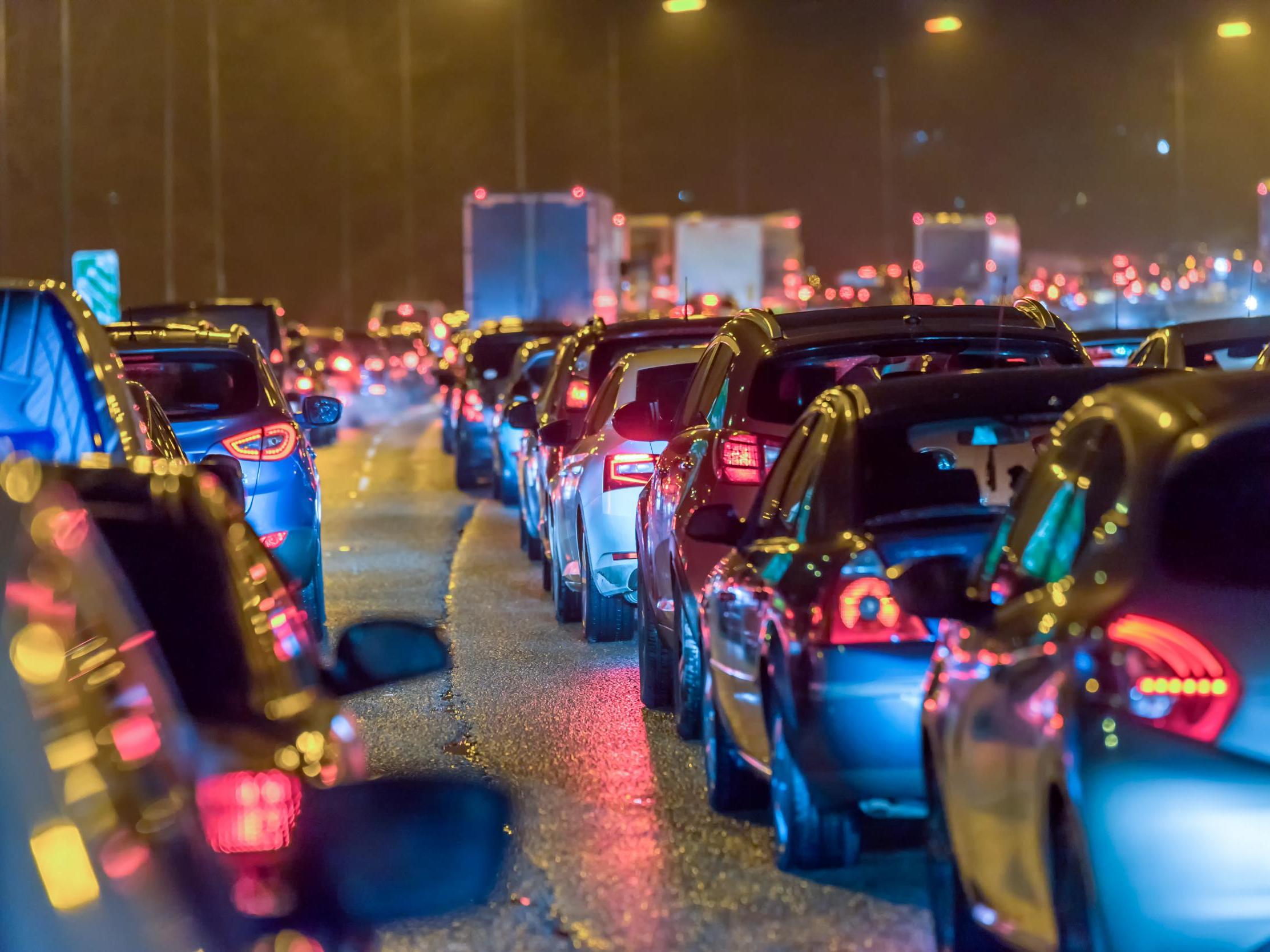Drivers who sit with engines idling could be fined instantly under government plans
Idling vehicles ‘produce enough exhaust emissions to fill 150 balloons a minute’

Your support helps us to tell the story
From reproductive rights to climate change to Big Tech, The Independent is on the ground when the story is developing. Whether it's investigating the financials of Elon Musk's pro-Trump PAC or producing our latest documentary, 'The A Word', which shines a light on the American women fighting for reproductive rights, we know how important it is to parse out the facts from the messaging.
At such a critical moment in US history, we need reporters on the ground. Your donation allows us to keep sending journalists to speak to both sides of the story.
The Independent is trusted by Americans across the entire political spectrum. And unlike many other quality news outlets, we choose not to lock Americans out of our reporting and analysis with paywalls. We believe quality journalism should be available to everyone, paid for by those who can afford it.
Your support makes all the difference.Drivers who are repeatedly caught with the engine of their vehicle running while they are stopped could be fined instantly under government plans to help deal with air pollution.
Environment secretary Michael Gove said he supported calls from some London councils to introduce stronger measures to tackle idling engines, which can cause more pollution than when a car is moving.
Few drivers have been fined for idling under the rules of the present system, where police can issue a fine only after they have given the driver a warning which is then ignored for over a minute.
The fine is £20 or £80, depending on how the local authorities choose to enforce the law.
Since 2017, Westminster Council has issued just 37 fines.
Speaking to The Times, Mr Gove said instant fines for repeat offenders should be considered as a solution to the problem, but said it was important to ensure the new powers would be used proportionately by councils.
Nickie Aiken, leader of Westminster City Council, said the council particularly wanted action taken against companies whose drivers persistently idle despite being requested not to do so.
“We need to change the way people think about engine idling,” she said. “It’s needless contribution to air pollution in our city and an issue that every driver can play their part to help stop.
“Having spoken to more than 20,000 drivers so far, our air quality marshals found that most who idle, do so out of habit. Once they know the damage it causes, including the health risks, and they’re asked to switch off the engine, they do and think twice before idling again.
“Fines should be a last resort – we prefer to ask nicely.
“However, for companies that continue widespread and persistent idling even after being asked, it may be necessary to look at legislation again allowing local authorities to fine companies indifferent to the consequences of pollution.”
Ms Aiken added: “It would need to be a four figure sum to be a sufficient deterrent for large companies.”
Meanwhile, Camden Council has requested the power to issue instant fines without giving a prior warning to the driver.
Adam Harrison, Camden’s cabinet member for environment, told The Times fines would send “a very clear message that drivers across the land would hear”.
He said: “While engagement [with the driver] is useful it is not going to cause everybody to change their behaviour in the way that getting a fine might.”
In an email to The Independent Westminster Council cited research indicating an average idling vehicle produces enough exhaust emissions to fill 150 balloons a minute with harmful chemicals.
They said buses, taxis, vans, cars and delivery vehicles account for more than half of the deadliest emissions in the air.
A Department for Transport spokesperson told The Independent: “We are determined to reduce the damaging environmental impacts of drivers who keep their engines running while stationary, especially those in school zones.
“This is why we are making guidance for local authorities clearer, so that they know how and when to target drivers falling foul of the law. We will also be polling local authorities to understand how any potential review of these powers may look in future.”
Join our commenting forum
Join thought-provoking conversations, follow other Independent readers and see their replies
Comments